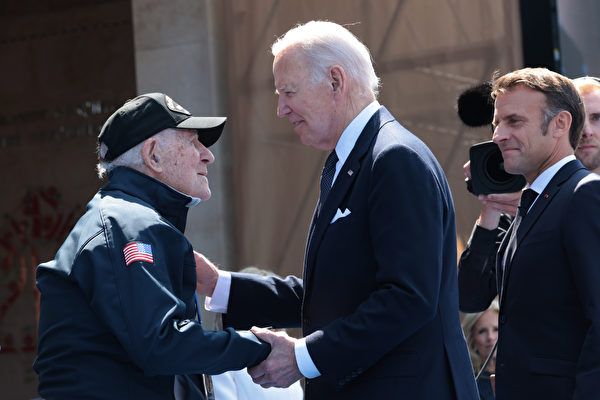On June 6, 1944, as the first-class US Army combat engineer Douglas Scott landed on the shores, he heard the sound of explosions echoing across the channel. “Suddenly, you had to run quickly, get away from the scene,” he told me. “We first swam in the water, then waded ashore. They were trying to treat some wounded. Medical staff couldn’t care for so many wounded. The tide rushed in, washing some of the injured into the sea.”
Due to overcrowding in the main landing area, the second group of engineers from the 348th Combat Engineer Battalion diverted to Omaha Beach in northern France. Al Gerstmann was a member of the engineering team who graduated from Puyallup High School in Washington in 1942. He worked in the Bremerton Navy shipyard in the state, helping to repair the damaged USS Nevada battleship at Pearl Harbor, Hawaii. On June 6, 1944, Gerstmann became a combat engineer, with the USS Nevada providing nearshore support, shelling German munitions depots at Omaha Beach. “The beach was filled with wounded,” he recalled. Gerstmann sought refuge near a field hospital below a steep cliff. He remembered that when German cannons landed in the nearby waters, the beach shook violently, like an earthquake.
Bob Leonard was one of the assistant medics who landed at Utah Beach in northern France with the US 101st Airborne Division glider detachment. His glider missed the target and landed near the water. Like many soldiers who participated in the D-Day military operation, this was Leonard’s first combat experience. He told me, “When I think of war, the first image that comes to my mind is a body rolling back and forth in the water.”
Another WWII veteran I interviewed who participated in the Normandy D-Day landing was Sergeant Ed Porter, who was a semi-professional New York Rangers ice hockey player when he was drafted. He told me that the waiting time for his tank unit to go ashore, during which Scott, Gerstmann, and others waited, was both terrifying and long.
“We sat there waiting for the engineers to clear the beach,” he said. “They had set up various obstacles on the ground, our (landing craft tanks) couldn’t go ashore. We sat on the landing craft, tanks fully geared up, looked from both sides, there was nothing but floating bodies. It was a bloody sight for us. We had never been to the battlefield. That was our first baptism of fire with artillery. The movie was terrible, but real war was undoubtedly more terrifying. Looking back now, it’s like being in hell.”
Each of them entered the heart of Europe, participating in the liberation of the European continent from Nazi rule. After the war, they all returned to their hometowns in Washington state, living ordinary lives. Porter became a police officer in Tacoma, Leonard was the head of the YMCA, Scott was a truck driver, and Gerstmann became a pastor in a Lutheran church. They provided for their families and engaged in community activities.
For Gerstmann, it took decades for him to open up and publicly share his experiences during the Normandy landing period. “For many years, I never talked about this,” he told me.
Renowned American TV host Tom Brokaw referred to these individuals and their contemporaries as the “Greatest Generation,” chronicling the heroic feat of the D-Day landing in his non-fiction book “The Greatest Generation” (2001), which became a bestseller. Although some find it difficult to share what they experienced during that war, 80 years later, we benefit from their great sacrifices at the time, and we should without hesitation and obligation deeply understand their moving stories.
What motivated American soldiers to join the battle during the Normandy D-Day period? Historian Stephen E. Ambrose in his book “Citizen Soldiers: The U.S. Army from the Normandy Beaches to the Bulge to the Surrender of Germany” (1998) bluntly wrote:
“At bottom, the citizen soldiers of the United States knew the difference between right and wrong, they did not want to live in a world ruled by evil. Therefore, they bravely fought and won, and we all, as well as generations to come, must forever be grateful to them.”
During WWII, American soldiers fought so arduously, resisting stubbornly until victory, because they deeply understood that the fate of the free world depended on winning the war.
June 6 this year marks the 80th anniversary of the young brave American soldiers who occupied the Normandy beaches. Each of us can contribute in our own way to ensure the epic of the D-Day landing lives on in memory. We must also share this memory with the next generation, helping them understand that today’s precious free society is built on the huge sacrifices of those who came before.
This article was published on Real Clear Wire website.

